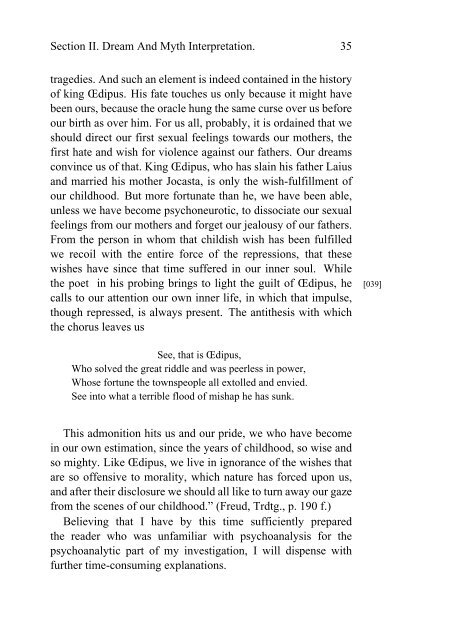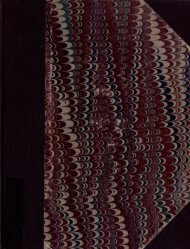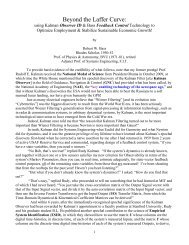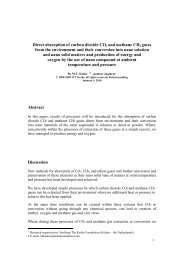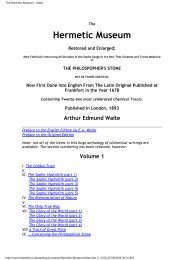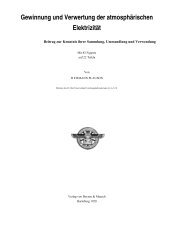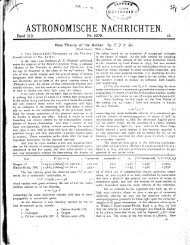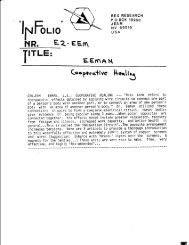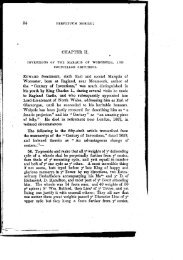- Page 1 and 2: The Project Gutenberg EBook of Hidd
- Page 3: Contents Translator's Preface . . .
- Page 6 and 7: [iii] This Dover edition, first pub
- Page 8 and 9: 4 Hidden Symbolism of Alchemy and t
- Page 10 and 11: 6 Hidden Symbolism of Alchemy and t
- Page 12 and 13: 8 Hidden Symbolism of Alchemy and t
- Page 14 and 15: 10 Hidden Symbolism of Alchemy and
- Page 16 and 17: 12 Hidden Symbolism of Alchemy and
- Page 18 and 19: 14 Hidden Symbolism of Alchemy and
- Page 20 and 21: 16 Hidden Symbolism of Alchemy and
- Page 22 and 23: 18 Hidden Symbolism of Alchemy and
- Page 24 and 25: 20 Hidden Symbolism of Alchemy and
- Page 26 and 27: 22 Hidden Symbolism of Alchemy and
- Page 28 and 29: 24 Hidden Symbolism of Alchemy and
- Page 30 and 31: 26 Hidden Symbolism of Alchemy and
- Page 32 and 33: 28 Hidden Symbolism of Alchemy and
- Page 34 and 35: 30 Hidden Symbolism of Alchemy and
- Page 36 and 37: 32 Hidden Symbolism of Alchemy and
- Page 40 and 41: [043] 36 Hidden Symbolism of Alchem
- Page 42 and 43: 38 Hidden Symbolism of Alchemy and
- Page 44 and 45: 40 Hidden Symbolism of Alchemy and
- Page 46 and 47: 42 Hidden Symbolism of Alchemy and
- Page 48 and 49: 44 Hidden Symbolism of Alchemy and
- Page 50 and 51: 46 Hidden Symbolism of Alchemy and
- Page 52 and 53: 48 Hidden Symbolism of Alchemy and
- Page 54 and 55: 50 Hidden Symbolism of Alchemy and
- Page 56 and 57: 52 Hidden Symbolism of Alchemy and
- Page 58 and 59: 54 Hidden Symbolism of Alchemy and
- Page 60 and 61: 56 Hidden Symbolism of Alchemy and
- Page 62 and 63: 58 Hidden Symbolism of Alchemy and
- Page 64 and 65: 60 Hidden Symbolism of Alchemy and
- Page 66 and 67: 62 Hidden Symbolism of Alchemy and
- Page 68 and 69: 64 Hidden Symbolism of Alchemy and
- Page 70 and 71: 66 Hidden Symbolism of Alchemy and
- Page 72 and 73: 68 Hidden Symbolism of Alchemy and
- Page 74 and 75: 70 Hidden Symbolism of Alchemy and
- Page 76 and 77: 72 Hidden Symbolism of Alchemy and
- Page 78 and 79: 74 Hidden Symbolism of Alchemy and
- Page 80 and 81: 76 Hidden Symbolism of Alchemy and
- Page 82 and 83: 78 Hidden Symbolism of Alchemy and
- Page 84 and 85: 80 Hidden Symbolism of Alchemy and
- Page 86 and 87: 82 Hidden Symbolism of Alchemy and
- Page 88 and 89:
84 Hidden Symbolism of Alchemy and
- Page 90 and 91:
86 Hidden Symbolism of Alchemy and
- Page 92 and 93:
Section II. Alchemy. [113] The trad
- Page 94 and 95:
90 Hidden Symbolism of Alchemy and
- Page 96 and 97:
92 Hidden Symbolism of Alchemy and
- Page 98 and 99:
94 Hidden Symbolism of Alchemy and
- Page 100 and 101:
96 Hidden Symbolism of Alchemy and
- Page 102 and 103:
98 Hidden Symbolism of Alchemy and
- Page 104 and 105:
100 Hidden Symbolism of Alchemy and
- Page 106 and 107:
102 Hidden Symbolism of Alchemy and
- Page 108 and 109:
104 Hidden Symbolism of Alchemy and
- Page 110 and 111:
106 Hidden Symbolism of Alchemy and
- Page 112 and 113:
108 Hidden Symbolism of Alchemy and
- Page 114 and 115:
110 Hidden Symbolism of Alchemy and
- Page 116 and 117:
112 Hidden Symbolism of Alchemy and
- Page 118 and 119:
114 Hidden Symbolism of Alchemy and
- Page 120 and 121:
116 Hidden Symbolism of Alchemy and
- Page 122 and 123:
118 Hidden Symbolism of Alchemy and
- Page 124 and 125:
120 Hidden Symbolism of Alchemy and
- Page 126 and 127:
122 Hidden Symbolism of Alchemy and
- Page 128 and 129:
124 Hidden Symbolism of Alchemy and
- Page 130 and 131:
126 Hidden Symbolism of Alchemy and
- Page 132 and 133:
128 Hidden Symbolism of Alchemy and
- Page 134 and 135:
130 Hidden Symbolism of Alchemy and
- Page 136 and 137:
132 Hidden Symbolism of Alchemy and
- Page 138 and 139:
134 Hidden Symbolism of Alchemy and
- Page 140 and 141:
136 Hidden Symbolism of Alchemy and
- Page 142 and 143:
138 Hidden Symbolism of Alchemy and
- Page 144 and 145:
140 Hidden Symbolism of Alchemy and
- Page 146 and 147:
142 Hidden Symbolism of Alchemy and
- Page 148 and 149:
144 Hidden Symbolism of Alchemy and
- Page 150 and 151:
146 Hidden Symbolism of Alchemy and
- Page 152 and 153:
148 Hidden Symbolism of Alchemy and
- Page 154 and 155:
150 Hidden Symbolism of Alchemy and
- Page 156 and 157:
152 Hidden Symbolism of Alchemy and
- Page 158 and 159:
154 Hidden Symbolism of Alchemy and
- Page 160 and 161:
156 Hidden Symbolism of Alchemy and
- Page 162 and 163:
158 Hidden Symbolism of Alchemy and
- Page 164 and 165:
160 Hidden Symbolism of Alchemy and
- Page 166 and 167:
162 Hidden Symbolism of Alchemy and
- Page 168 and 169:
164 Hidden Symbolism of Alchemy and
- Page 170 and 171:
166 Hidden Symbolism of Alchemy and
- Page 172 and 173:
168 Hidden Symbolism of Alchemy and
- Page 174 and 175:
170 Hidden Symbolism of Alchemy and
- Page 176 and 177:
172 Hidden Symbolism of Alchemy and
- Page 178 and 179:
174 Hidden Symbolism of Alchemy and
- Page 180 and 181:
176 Hidden Symbolism of Alchemy and
- Page 182 and 183:
178 Hidden Symbolism of Alchemy and
- Page 184 and 185:
180 Hidden Symbolism of Alchemy and
- Page 186 and 187:
182 Hidden Symbolism of Alchemy and
- Page 188 and 189:
184 Hidden Symbolism of Alchemy and
- Page 190 and 191:
186 Hidden Symbolism of Alchemy and
- Page 192 and 193:
188 Hidden Symbolism of Alchemy and
- Page 194 and 195:
190 Hidden Symbolism of Alchemy and
- Page 196 and 197:
192 Hidden Symbolism of Alchemy and
- Page 198 and 199:
194 Hidden Symbolism of Alchemy and
- Page 200 and 201:
196 Hidden Symbolism of Alchemy and
- Page 202 and 203:
198 Hidden Symbolism of Alchemy and
- Page 204 and 205:
200 Hidden Symbolism of Alchemy and
- Page 206 and 207:
202 Hidden Symbolism of Alchemy and
- Page 208 and 209:
204 Hidden Symbolism of Alchemy and
- Page 210 and 211:
206 Hidden Symbolism of Alchemy and
- Page 212 and 213:
208 Hidden Symbolism of Alchemy and
- Page 214 and 215:
210 Hidden Symbolism of Alchemy and
- Page 216 and 217:
212 Hidden Symbolism of Alchemy and
- Page 218 and 219:
214 Hidden Symbolism of Alchemy and
- Page 220 and 221:
216 Hidden Symbolism of Alchemy and
- Page 222 and 223:
218 Hidden Symbolism of Alchemy and
- Page 224 and 225:
220 Hidden Symbolism of Alchemy and
- Page 226 and 227:
222 Hidden Symbolism of Alchemy and
- Page 228 and 229:
224 Hidden Symbolism of Alchemy and
- Page 230 and 231:
226 Hidden Symbolism of Alchemy and
- Page 232 and 233:
228 Hidden Symbolism of Alchemy and
- Page 234 and 235:
230 Hidden Symbolism of Alchemy and
- Page 236 and 237:
232 Hidden Symbolism of Alchemy and
- Page 238 and 239:
234 Hidden Symbolism of Alchemy and
- Page 240 and 241:
236 Hidden Symbolism of Alchemy and
- Page 242 and 243:
238 Hidden Symbolism of Alchemy and
- Page 244 and 245:
240 Hidden Symbolism of Alchemy and
- Page 246 and 247:
242 Hidden Symbolism of Alchemy and
- Page 248 and 249:
244 Hidden Symbolism of Alchemy and
- Page 250 and 251:
246 Hidden Symbolism of Alchemy and
- Page 252 and 253:
248 Hidden Symbolism of Alchemy and
- Page 254 and 255:
250 Hidden Symbolism of Alchemy and
- Page 256 and 257:
252 Hidden Symbolism of Alchemy and
- Page 258 and 259:
254 Hidden Symbolism of Alchemy and
- Page 260 and 261:
Section II. The Goal Of The Work. [
- Page 262 and 263:
258 Hidden Symbolism of Alchemy and
- Page 264 and 265:
260 Hidden Symbolism of Alchemy and
- Page 266 and 267:
262 Hidden Symbolism of Alchemy and
- Page 268 and 269:
264 Hidden Symbolism of Alchemy and
- Page 270 and 271:
266 Hidden Symbolism of Alchemy and
- Page 272 and 273:
268 Hidden Symbolism of Alchemy and
- Page 274 and 275:
270 Hidden Symbolism of Alchemy and
- Page 276 and 277:
272 Hidden Symbolism of Alchemy and
- Page 278 and 279:
274 Hidden Symbolism of Alchemy and
- Page 280 and 281:
276 Hidden Symbolism of Alchemy and
- Page 282 and 283:
278 Hidden Symbolism of Alchemy and
- Page 284 and 285:
280 Hidden Symbolism of Alchemy and
- Page 286 and 287:
282 Hidden Symbolism of Alchemy and
- Page 288 and 289:
Section III. The Royal Art. [374] I
- Page 290 and 291:
286 Hidden Symbolism of Alchemy and
- Page 292 and 293:
288 Hidden Symbolism of Alchemy and
- Page 294 and 295:
290 Hidden Symbolism of Alchemy and
- Page 296 and 297:
292 Hidden Symbolism of Alchemy and
- Page 298 and 299:
294 Hidden Symbolism of Alchemy and
- Page 300 and 301:
296 Hidden Symbolism of Alchemy and
- Page 302 and 303:
298 Hidden Symbolism of Alchemy and
- Page 304 and 305:
300 Hidden Symbolism of Alchemy and
- Page 306 and 307:
302 Hidden Symbolism of Alchemy and
- Page 308 and 309:
304 Hidden Symbolism of Alchemy and
- Page 310 and 311:
306 Hidden Symbolism of Alchemy and
- Page 312 and 313:
308 Hidden Symbolism of Alchemy and
- Page 314 and 315:
310 Hidden Symbolism of Alchemy and
- Page 316 and 317:
312 Hidden Symbolism of Alchemy and
- Page 318 and 319:
314 Hidden Symbolism of Alchemy and
- Page 320 and 321:
316 Hidden Symbolism of Alchemy and
- Page 322 and 323:
318 Hidden Symbolism of Alchemy and
- Page 324 and 325:
320 Hidden Symbolism of Alchemy and
- Page 326 and 327:
322 Hidden Symbolism of Alchemy and
- Page 328 and 329:
324 Hidden Symbolism of Alchemy and
- Page 330 and 331:
Bibliography. [428] OLD. (Before 18
- Page 332 and 333:
328 Hidden Symbolism of Alchemy and
- Page 334 and 335:
330 Hidden Symbolism of Alchemy and
- Page 336 and 337:
332 Hidden Symbolism of Alchemy and
- Page 338 and 339:
334 Hidden Symbolism of Alchemy and
- Page 340 and 341:
336 Hidden Symbolism of Alchemy and
- Page 342 and 343:
338 Hidden Symbolism of Alchemy and
- Page 344 and 345:
340 Hidden Symbolism of Alchemy and
- Page 346 and 347:
342 Hidden Symbolism of Alchemy and
- Page 348 and 349:
Index. A Abraham, 36 Abudad, 71 Ada
- Page 350 and 351:
346 Hidden Symbolism of Alchemy and
- Page 352 and 353:
348 Hidden Symbolism of Alchemy and
- Page 354 and 355:
350 Hidden Symbolism of Alchemy and
- Page 356 and 357:
352 Hidden Symbolism of Alchemy and
- Page 358 and 359:
354 Hidden Symbolism of Alchemy and
- Page 360 and 361:
356 Hidden Symbolism of Alchemy and
- Page 362 and 363:
358 Hidden Symbolism of Alchemy and
- Page 364 and 365:
360 Hidden Symbolism of Alchemy and
- Page 366 and 367:
362 Hidden Symbolism of Alchemy and
- Page 368 and 369:
364 Hidden Symbolism of Alchemy and
- Page 370 and 371:
366 Hidden Symbolism of Alchemy and
- Page 372 and 373:
368 Hidden Symbolism of Alchemy and
- Page 375:
Footnotes
- Page 379:
Credits January 9, 2009 Project Gut
- Page 382 and 383:
The Full Project Gutenberg License
- Page 384 and 385:
380 Hidden Symbolism of Alchemy and
- Page 386 and 387:
382 Hidden Symbolism of Alchemy and
- Page 388 and 389:
384 Hidden Symbolism of Alchemy and
- Page 390 and 391:
386 Hidden Symbolism of Alchemy and
- Page 392 and 393:
388 Hidden Symbolism of Alchemy and
- Page 394:
390 Hidden Symbolism of Alchemy and


